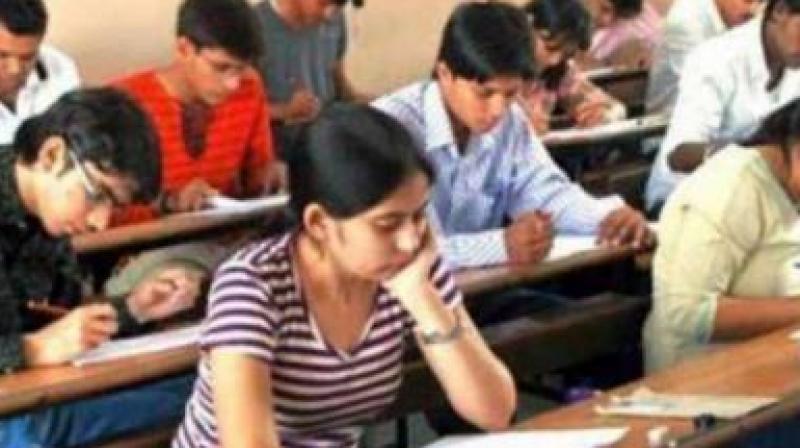Academicians impressed with revised state board syllabus

Chennai: The department of school education identified the need for reconstruction of the curriculum in 2017, following which committees and sub-committees for curriculum development were constituted. The government order dated July 22, 2017, hinted at a number of significant alterations to the existing education system ranging from incorporating the use of technology in learning, eliminating rote learning, to some major changes in the higher secondary education (minimum pass percentage was changed to 35 per cent, the duration of the board examinations was shortened to 2 and a half hours, both 11th and 12th boards were given equal weightage and 10 per cent marks allotted for internal assessments).
While the syllabus for classes 1,6,9 and 11 was revised last year, the curriculum for classes 2,7,10 and 12 was modified this academic year. The syllabus revision comes after a period of almost 9 years for classes 1-10 and after 12 years for higher secondary classes. Says Mr Veeraswamy, vice principal, academics, SRM Nightingale higher secondary school, West Mambalam, “The new syllabus has been mindfully curated and aims at the overall growth of a child. The standard of the revised syllabus is definitely several notches higher than the previous curriculum. Moreover, the new syllabus aims to abolish the rudimentary system of the state board education which largely promotes memorizing and rote learning as opposed to conceptual understanding and critical thinking.”
Puneet Sharma of Saints Art Strategic Communication is of a similar opinion. Speaking to Deccan Chronicle, he says,” The previous curriculum faced challenges like rote learning, lack of analytical skills because of heavy reliance on a theoretical approach instead of a problem-solving one, and absence of contemporary issues, causing a disconnect with the real world. Under the revised curriculum, the major focus is to shape the student’s mind so that they do not face much difficulty in clearing national level tests. The revised textbooks are being positioned as the window to the world of wisdom as they blend technology and the syllabus in a huge way.”
He notes that brand new features like case studies, infographics, concept maps, web links and reference books have been included in the revised curriculum.
P.B. Prince Gajendra Babu, general secretary, state platform for common school system, Tamil Nadu, believes this change was long overdue. When asked if the revised syllabus would help the state’s students crack competitive exams as claimed, he retorts, “Competitive exams are just a market concept. You cannot judge the standard of a curriculum with the probability it offers of clearing a competitive exam. “
With the syllabus now revamped to suit the present-day requirements, the immediate focus is now on how effectively it is implemented. “The success of the new syllabus rests largely on its implementation and incorporation and most importantly on the system of evaluation,” says Mr Veeraswamy. The faculty too will undergo a Faculty Development Programme (FDP) to equip themselves with the new teaching methodologies.
The altered curriculum demands a different approach of teaching, says Mr Puneet Sharma. “There is a huge question about the quality of government training programs. Teacher Eligibility Test (TET) cannot remain just an eligibility test mandated by government. Instead of checking memory skills, TET has to be revised too in a way so that it analyses the aptitude and attitude of the candidates,” says Mr.Sharma, emphasising the need for better training programmes for teachers too.
Educationists say that while students might find the new syllabus difficult at first, they will get accustomed to it with time. “ QR codes have been provided in the textbooks which will enable students to have easy access to additional content with audio-visuals for better conceptual learning,” says Mr.Sharma speaking of how the new syllabus would encourage students to explore learning methods out of conventional classroom learning.
As Mr.Sharma says, “ An ideal education syllabus is one which is progressive as well as reconstructive. Learning in the 21st century cannot be restricted to textbooks alone and should not be isolated from the developments happening around the globe. The perfect syllabus is one which aims at the holistic development of students, giving them knowledge of theory as well as its applicability.”

